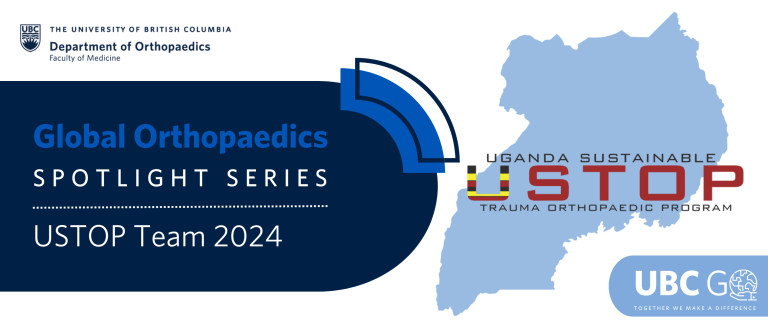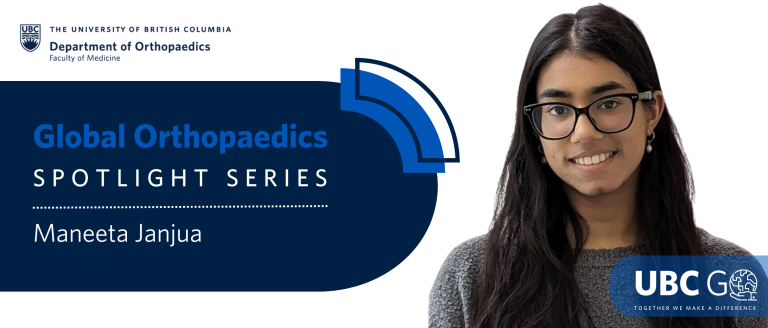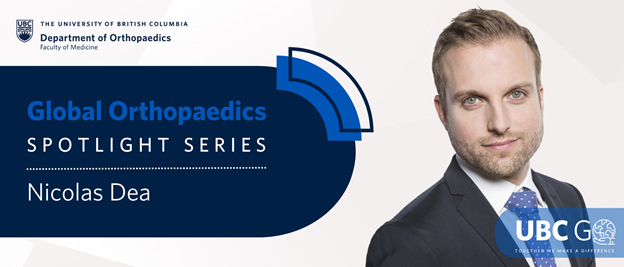By Tarini Boparai
Our UBC Global Orthopaedics (UBC GO) Spotlight series features in-depth conversations with a UBC Department of Orthopaedics member about their involvement in global orthopaedic initiatives.
In our first UBC GO spotlight, we speak with UBC Orthopaedics Clinical Assistant Professor, Dr. Jeff Potter.

JEFF POTTER
UBC Orthopaedics Clinical Assistant Professor
Site:
Vancouver
Division:
Trauma
What inspired your interest in global health/surgery/orthopaedics?
I grew up as a child of missionaries and spent a large part of my childhood in Papua New Guinea, so international work and travel was always a big part of my life growing up. It was due to these experiences that I knew pretty early on in my life that I wanted to be involved in international work within medicine.
What did you do?
I got involved with UBC Orthopaedics’ Uganda Sustainable Trauma Orthopaedic Program (USTOP) as a resident in my 4th year. My role, in part, was to help with teaching the courses and on the ward. Typically, I went on rounds, did ward teaching and helped in the operating room – teaching the residents operative techniques. The other part of my role within USTOP was research based – looking at how orthopaedic trauma was affecting patients in Uganda, particularly in terms of their ability to earn a livelihood.
Where did you find the funding?
USTOP had some outside funding and donations but a lot of our trips were funded by the people involved themselves. Volunteers traveling with USTOP are responsible for paying for their own airfare, and USTOP covers their accommodation and meals.
One thing we’re probing and looking into is sustainability. Do you think your projects were able to achieve sustainability?
In my eyes, the overall idea was that as local orthopaedic surgeons became more comfortable and competent with modern orthopaedic surgical techniques they would start to take over training of residents and care overall would continue to improve. The COVID-19 crisis put that theory to the test, and we saw that local surgeons continued to teach and run some of their courses, even in the absence of foreign surgeons. So yes, the program was sustainable, and even became self-sustaining when our role was limited by the pandemic
One area I think we could have improved upon was in terms of the long term outcomes was quantifying our results and progress. However, quantifying long term outcomes objectively in this setting is a tricky task.
Looking back, what do you think were the key insights and main barriers that you faced?
When dealing with sponsors and grants, I think it would have been helpful to have objective outcome measures decided from the very beginning so that long term outcomes and progress could have been easily quantified. One of the crucial elements that I’d like to emphasize is the importance of speaking to local orthopaedic surgeons and asking them about their needs time and time again because needs change alongside changes in the environment. So in short – objective measures and regular assessment of those objective measures is of utmost importance.
Are you working on any projects right now? What are your future plans/implications?
I hope to continue my USTOP involvement as we define what that will look like post-pandemic. Unfortunately I had to cancel a trip last fall due to the Ebola outbreak in Uganda. I’m also a member of Canadian Orthopaedic Association Global Surgery Committee, and working on creating a UBC Global Orthopaedics program.





